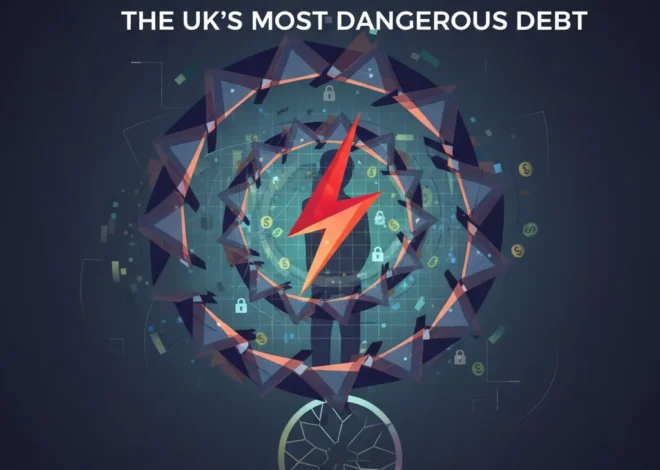
Fiscal Straitjacket or Guardian of Stability? The Fierce Debate Over the UK’s Economic Watchdog
In the world of finance and national economics, few institutions hold as much sway over a nation’s fiscal direction as the UK’s Office for Budget Responsibility (OBR). Established to be the impartial umpire of government spending and borrowing, its forecasts can make or break a Chancellor’s Budget. Yet, as another Budget cycle concludes, a powerful debate is raging: has this independent watchdog become an all-powerful entity, a “straitjacket on growth” that stifles bold economic policy? Or is it the last line of defence against the kind of fiscal recklessness that can destabilize an entire economy?
This isn’t merely a technical squabble among economists. The outcome of this debate has profound implications for investors, business leaders, and anyone with a stake in the UK’s economic future. It touches upon the core of how a modern democracy should manage its finances and what levers can be pulled to foster prosperity. As we delve into the arguments, we uncover a fundamental tension between technocratic oversight and political ambition, a conflict that shapes everything from tax policy to the stability of the stock market.
The Genesis of the Guardian: Why Was the OBR Created?
To understand the current controversy, we must first look back to its origins. The Office for Budget Responsibility was founded in 2010 by then-Chancellor George Osborne. The backdrop was the aftermath of the 2008 global financial crisis, a period where trust in official economic figures had been severely eroded. For decades, Chancellors had been accused of “marking their own homework,” presenting overly optimistic growth forecasts to justify their spending plans. This practice damaged the credibility of UK public finance.
The OBR was designed to end this. Its mandate was simple yet revolutionary: to provide independent and authoritative analysis of the UK’s public finances. As stated on its own charter, its purpose is to “improve the quality of public debate on the public finances” by assessing the government’s performance against its fiscal targets. By taking the power of forecasting out of the hands of politicians, the OBR was intended to restore confidence among investors and the public, ensuring that budget decisions were grounded in a sober assessment of reality. For a time, this model was hailed as a global standard for fiscal transparency.
The Canary in the Coal Mine? Why MicroStrategy's Plunge is a Bigger Signal Than Bitcoin's Stumble
The Case Against: An Unyielding “Straitjacket on Growth”
Despite its noble intentions, criticism of the OBR has grown louder, particularly from those on the supply-side of the political spectrum. The central accusation is that the OBR’s methodology is inherently too cautious, underestimating the potential for growth that could be unleashed by policies like tax cuts. Critics argue that the OBR has become a de facto policymaker, its pronouncements boxing in Chancellors and preventing them from making the bold moves needed to energize the UK economy.
One of the main technical criticisms revolves around the concept of “dynamic scoring.” The OBR’s models are often described as static, meaning they tend to assume that a tax cut primarily results in a direct loss of revenue. Proponents of dynamic scoring argue that tax cuts can stimulate economic activity—encouraging investing, boosting employment, and ultimately generating new tax revenue that partially offsets the initial cut. The OBR does incorporate some of these effects, but critics claim its models are not nearly optimistic enough. According to some MPs, this conservative approach effectively blocks tax cuts that could be vital for growth.
This has led to a situation where Chancellors are seen “gaming the system,” making minor tweaks to policy simply to meet the OBR’s rigid fiscal rules by a razor-thin margin. The focus shifts from long-term economic strategy to short-term fiscal arithmetic, a process that arguably serves spreadsheets better than it serves the public.
Below is a summary of the primary arguments levied against the OBR’s current influence:
| Criticism | Underlying Argument |
|---|---|
| Pessimistic Forecasting | The OBR’s models are seen as inherently cautious, underestimating the UK’s growth potential and the positive impact of supply-side reforms. |
| Static Modelling | Critics argue the OBR fails to adequately account for the “dynamic” effects of tax cuts, which can stimulate the economy and generate revenue. |
| Constrains Policy | The institution’s power forces Chancellors to focus on meeting narrow fiscal rules, stifling ambitious, long-term economic strategies. |
| Undemocratic Influence | An unelected body of technocrats holds too much power over the economic direction set by a democratically elected government. |
The Defence: A Bastion of Credibility in a Volatile World
For every critic of the OBR, there is a staunch defender who points to one recent, dramatic event as proof of its necessity: the September 2022 “mini-budget.” When then-Chancellor Kwasi Kwarteng announced a massive package of unfunded tax cuts without an accompanying OBR forecast, the market reaction was swift and brutal. The pound plummeted, government borrowing costs soared, and the Bank of England was forced into an emergency intervention. The episode was a stark reminder of what happens when fiscal policy is untethered from a credible, independent assessment. The OBR’s supporters argue it acts as an essential “reality check,” preventing what former Bank of England Governor Mark Carney once called “fantasy economics.”
Supporters contend that the OBR’s sober analysis provides the very stability that underpins the UK’s financial system. International investors, who buy UK government debt, rely on its impartial judgments to assess the country’s creditworthiness. Without the OBR, they argue, borrowing costs would be permanently higher, as a “risk premium” would be attached to UK assets. This stability is crucial not just for government borrowing but for the entire economy, influencing everything from mortgage rates to business investment decisions. As Richard Hughes, the current OBR chairman, noted, their role is to ensure “the government’s sums add up” and that policies are based on a realistic view of their impact.
Future-Proofing the Watchdog: The Role of Fintech and Modern Economics
While the debate often seems binary, a third path is emerging: reform. The world of economics and data analysis is evolving rapidly, and perhaps the OBR’s models need to evolve with it. This is where advancements in financial technology (fintech) and big data could play a transformative role. Current macroeconomic models are often based on historical data and aggregated statistics, making them slow to adapt to rapid economic shifts.
Imagine a future where economic forecasting leverages real-time, anonymized data from payment systems, supply chain logistics, and labour markets. Such an approach could provide a much more dynamic and accurate picture of the economy’s health, potentially allowing for more nuanced “dynamic scoring” of policy changes. Furthermore, technologies like blockchain could offer radical transparency in public spending, allowing for real-time auditing and analysis that is currently impossible. While these applications are still nascent, the conversation about reforming the OBR should include how to equip it with the tools of 21st-century trading and data science, rather than simply arguing about its existing power.
What This Means for Investors and Business Leaders
For those involved in investing and corporate strategy, the OBR debate is far from theoretical. Its influence is felt directly in the markets:
- Gilt Markets: OBR forecasts on government debt are a primary driver of UK government bond (gilt) yields. A pessimistic forecast can push yields higher, increasing the government’s borrowing costs and setting the baseline for interest rates across the economy.
- Currency Markets: The perceived credibility of the UK’s fiscal plan, as certified by the OBR, is a key factor for currency traders. A loss of confidence can lead to a sharp depreciation of the pound, as seen in 2022.
- Stock Market Stability: While individual stocks respond to myriad factors, the overall stability of the stock market relies on a predictable macroeconomic environment. The OBR, by anchoring fiscal policy, helps reduce the kind of political and economic volatility that investors abhor.
- Business Planning: OBR forecasts on GDP growth, inflation, and unemployment are essential inputs for any business crafting a medium- to long-term strategy in the UK.
From Aberdeen to Dubai: Analyzing Wood Plc's £1.4 Billion Takeover by Sidara
Conclusion: An Uneasy but Necessary Balance
The Office for Budget Responsibility exists in a state of permanent tension. It is a technocratic body designed to constrain the very democratic process that created it. The criticism that it can act as a “straitjacket” is not without merit; its models and rules inevitably create boundaries for policymakers. However, the alternative—a return to politically-driven forecasts with no independent oversight—has been shown to be fraught with peril.
The path forward is likely not to abolish the watchdog, but to refine its role. This involves a serious conversation about its forecasting models, its flexibility, and its ability to incorporate more dynamic, forward-looking analysis. The goal should be to find a balance where the OBR continues to serve as a guardian of fiscal credibility while allowing democratically elected governments the space to pursue ambitious strategies for growth. For the UK economy, and for all who depend on its stability, getting this balance right is more critical than ever.


